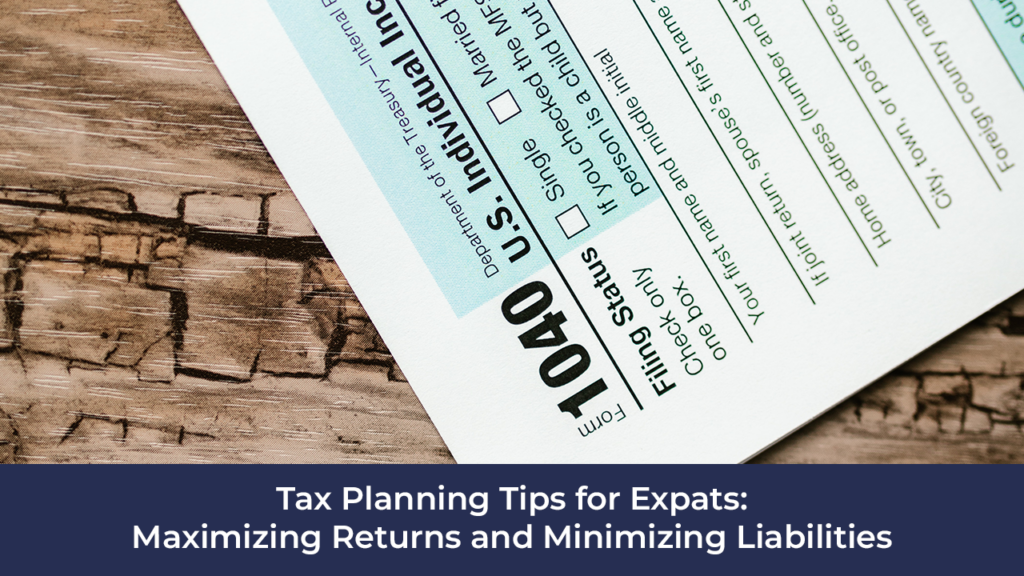Inflation is a critical factor to consider when planning your savings strategy, particularly if you are an expat living in Germany in these times. Inflation is the general increase in prices of goods and services over time. As prices continue to rise, the purchasing power of your money decreases over time. This means that in the future, the same amount of money you save today may not be sufficient to maintain your standard of living. Inflation is a silent thief that eats away at your purchasing power and can significantly impact your savings affordability.
The Impact of Inflation on Savings Strategy
One of the primary ways inflation affects your savings strategy is by decreasing, over time, the value of the money that you earn. For instance, if the inflation rate is 2% per year, you need to earn at least 2% on your savings or your income every year to maintain the same purchasing power. If you don’t earn this return, the value of your salary and savings will decrease over time. This means you will have less money to spend in the future than you would have had if the inflation rate had been lower or if your total incoeme had grown at a higher rate.
Inflation also affects your retirement savings. If you plan to retire in the next 30 years, the purchasing power of your retirement savings may decrease significantly due to inflation. This means that your retirement savings may not be enough to support your lifestyle in retirement. It’s crucial to start planning early and take inflation into account when planning your retirement savings strategy.
Earning a Return on Savings to Counter Inflation
To combat inflation, you need to earn a return on your savings that is higher than the rate of inflation in the currency in which you save. This means that your return on investment needs to exceed the inflation rate, or else your savings will decrease in value over time. It’s important to remember that while savings accounts may provide a secure place to store your money, they typically offer low-interest rates that may not keep up with inflation.
The Importance of Planning for Inflation
Taking inflation into account when planning your savings and investment strategy is crucial to maintain your standard of living in the future. It’s important to understand that inflation can have a significant impact on the value of your savings over time, and the real return on your investments. As a result, it’s important to regularly adjust your savings goals to account for changes in the inflation rate to help you stay on track towards achieving your financial goals.
You can start by setting realistic savings goals based on your income and expenses. Then, it’s important to adjust these goals regularly to account for changes in the inflation rate. By doing so, you’ll be able to ensure that your savings goals keep pace with inflation and that you’re able to maintain your standard of living over time. It’s also important to review your savings plan regularly and make changes as necessary to stay on track towards achieving your financial goals.
Investment Options to Beat Inflation
As an expat, it’s essential to consider investment options that offer higher returns, such as stocks, bonds, or mutual funds. These investment options come with increased risk, but they can help you keep up with inflation over time and grow your wealth. Investing in stocks, for instance, provides an opportunity to earn higher returns over the long term. Although stocks can be volatile and risky, they offer the potential for higher returns compared to savings accounts or bonds. Bonds, on the other hand, can provide a steady source of income and are generally less volatile than stocks.
Real estate is another investment option that can help you beat inflation. Real estate investment trusts (REITs) offer a way to invest in real estate without buying property outright. These investments can provide an excellent source of rental income and capital appreciation over time. Commodities such as gold and silver also offer a way to hedge against inflation. These investments are generally less volatile than stocks and can offer a store of value in times of economic uncertainty.
When planning your savings and investment strategy, it’s important to consider the rate of inflation in your chosen currency. This will help you determine the type of investments that can provide a return that keeps up with inflation. Stocks, bonds, and real estate are all examples of investments that can help you beat inflation. However, it’s important to note that these investment options come with varying degrees of risk.
Stocks, for example, are generally considered to be a higher-risk investment option. However, they can provide significant returns over the long term that can help you beat inflation. Bonds, on the other hand, are generally considered to be a lower-risk investment option, but they may not provide as high of a return as stocks. Real estate can also be a good investment option, as it tends to appreciate over time and can provide a stable source of income.
It’s important to do your research and consult with a financial advisor before making any investment decisions. A financial advisor can guidance on adjusting your investment strategy to account for changes in the inflation rate and help you build a diversified investment portfolio that can help you achieve your financial goals.
Adjusting Savings Goals to Account for Inflation
Adjusting your savings goals to account for inflation is an important part of your overall financial planning. It’s essential to regularly review your savings plan and make adjustments as necessary. This can include increasing your savings rate or changing your investment strategy to include higher-return investment options. It’s also important to keep an eye on the inflation rate and adjust your savings goals accordingly to ensure you’re on track to meet your financial goals.
One strategy that can help you keep pace with inflation is to invest in inflation-protected securities, such as TIPS (Treasury Inflation-Protected Securities) or inflation-linked bonds. These securities are designed to provide a return that keeps pace with inflation, making them a good investment option for those who are concerned about the impact of inflation on their savings.
Seeking Professional Financial Advice
If you’re an expat living in Germany, seeking professional financial advice is essential when planning your savings strategy. A financial advisor can help you determine your risk tolerance and identify investment options that are best suited for your needs. They can also provide guidance on adjusting your savings goals to account for inflation and help you navigate the complex world of investing.
At MW Expat Invest we can help you build a comprehensive financial plan that takes into account your short-term and long-term goals, and help you achieve financial security and success. We can also provide advice on tax planning, retirement planning, and estate planning, ensuring that you have a comprehensive financial plan that covers all aspects of your financial life.





